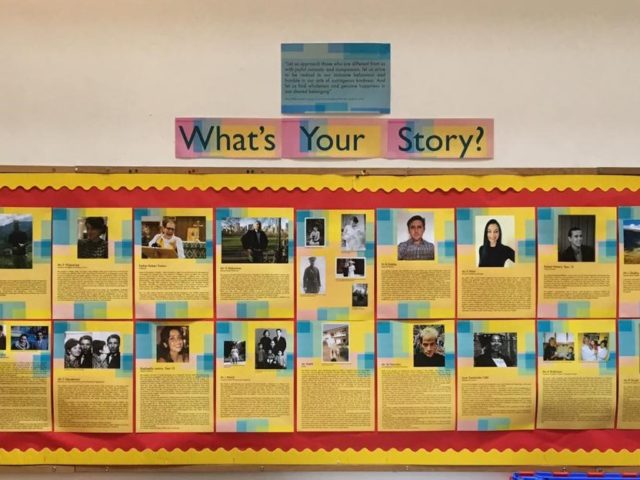An unusual injunction, especially from a colleague – our Deputy Head (Academic) – tasked with the direction of teaching and learning at Highgate. However, the full imperative was to forget everything you know about A levels, and it was directed at parents and carers of our Year 11 pupils who this year included yours truly. I gave it my best shot!
We were meeting to kick off the advice and decision-making process for these young people who will embark upon the study of four subjects in the sixth form in September 2018, a palette of twenty-four subjects, some new, some familiar. Mr Newton’s well-made point was that what we may know or may have known is unlikely to be up-to-date knowledge, and we need to re-learn what sixth courses now look like and to shelve the advice or experiences we have had if we took A levels and went to university.
It’s so easy to feel as a parent that your advice is the advice which your children will ignore. Precisely at the moment when the decisions become so critical, your children appear to need to break away from you most urgently, and your ability, as the people who know your children the best, runs away like much water through a sieve. I say ‘your’: of course, I also mean ’our’! And that’s why I thought Mr Newton’s advice was on the money: if we shadow the learning the Year 11s are doing and model the open-mindedness that we ask them to embrace in thinking about their subjects, we’ll stand a better chance of getting them to put to one side preconceptions about what they’re good at, what they like doing and where each subject might take them. We understand that we are there not to make a decision but to help create the circumstances in which good decisions can be made by our children, where we listen, where we help our children to ask good questions, where we keep our own advice to ourselves.
According to the outgoing CEO of UCAS, the university admissions service, Mary Curnock Cook, two-thirds of students in independent schools apply for only one third of available courses at British colleges and universities; their top choices of university and course haven’t changed significantly since their parents applied to university thirty years ago. Yet the economy, artificial intelligence, computerisation, Brexit – you name it, the world of work is profoundly different in ways which are now all too familiar while sixth form study – A levels becoming linear, for example – is more similar than it has been in the last fifteen years of reforms to what we parents knew, albeit with quite different pedagogies and technologies (no longer is a lesson lost if sleepy adolescent brains forget to pack text books: out flashes a phone, pages are snapped and pinged to other phones – they never seem to stay at home – and the lesson moves on!).
So I was quite surprised at our senior prize-giving for Years 11, 12 and 13 in September to hear from Baroness Wolf, economist, professor and specialist adviser to the Government on vocational education and training, persuasively arguing that in choosing subjects at school and for university that interest, that passion, should be top, should be the first and most important criterion. Why? Because it is in studying something you love that you develop those very qualities of team-working, creativity, problem-solving, reflectiveness, which will make you employable, entrepreneurial, productive. And you’ll be so much more likely to deepen, develop and diversify your many intelligences as you pitch them against academic conundrums you really care about.
Hurray! That felt like a licence to continue what I love about Highgate: to ensure that the infectious omni-directional curiosity with which an eleven-year-old sets out on their journey grows into a steely, self-propelling passion. No conflict or compromise with developing the whole person, with becoming properly employable, wise to opportunity and the skills needed to make and take chances.
As my son and I dropped in to the subject fair to quiz his teachers about their subjects and his chances, I overheard conversation after conversation led by these young people, admiring parents in tow, wowed by the students’ piercing, perceptive questioning, reassured by the astute understanding of themselves and the choices that stood before them, and by the deft, patient and enthusiastic advice which teacher after teacher seemed inexhaustibly willing to give.
The future may sometimes feel far from safe, but in the hand of this lot, surely the future’s bright?
Adam Pettitt, 9 November 2017

